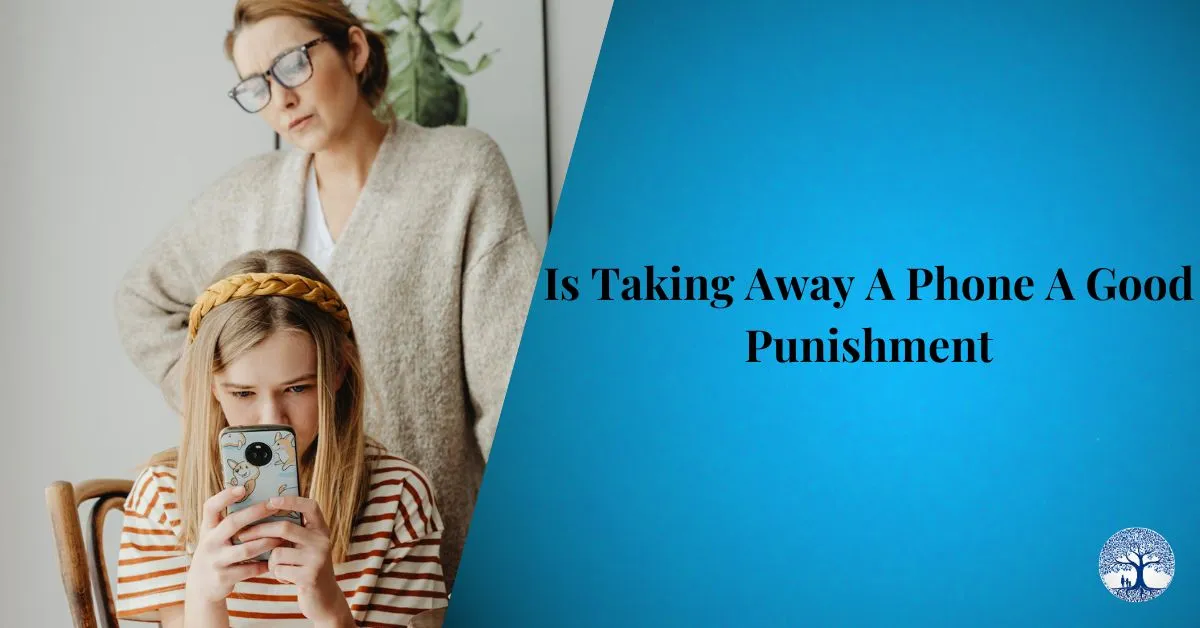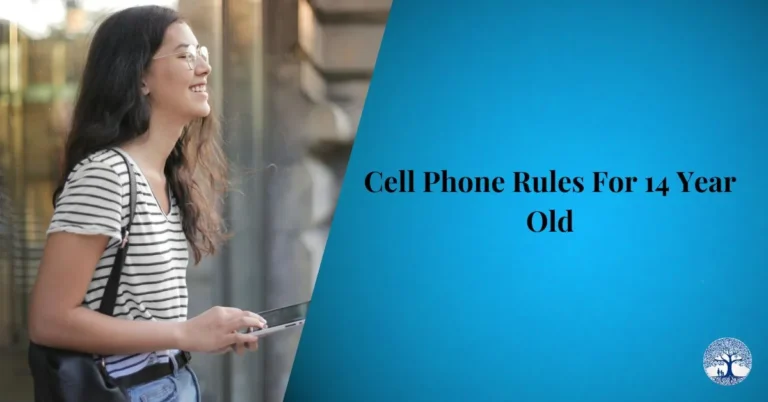Introduction
In today’s digital age, smartphones have become an essential part of teenagers’ lives, serving as a gateway to social interactions, education, and entertainment. As a result, many parents find themselves contemplating whether taking away a phone is an effective form of punishment when their teen steps out of line. This method of discipline has sparked considerable debate among parents, educators, and psychologists alike. On one hand, it can be a powerful way to grab a teen’s attention and enforce boundaries; on the other, it can lead to unintended consequences that might exacerbate the very behavior parents are trying to curb.
So, is phone confiscation a good punishment, or are there better ways to guide a teenager’s actions? Let’s explore the complexities of this modern-day parenting dilemma.
Why Parents Consider Taking Away a Phone as Punishment
Understanding the Reasons for Phone Confiscation
Parents often resort to taking away a phone as a form of discipline because it is an immediate and tangible way to address their teenager’s behavior. This method, known as phone confiscation, is seen as a straightforward response to misconduct, whether it be breaking curfew, failing to complete schoolwork, or showing disrespect. For many parents, the logic is simple: removing something their teen values highly is likely to make a strong impact and serve as a deterrent against future misbehavior.
Role of Phones in a Teenager’s Life
To fully understand why this method is so widely used, it’s essential to consider the significance of smartphones in a teenager’s life. Phones are not just communication devices; they are central to a teen’s social world, offering access to friends, social media, and online communities. Additionally, smartphones provide essential tools for learning and staying informed. Given their importance, the removal of a phone can feel like a severe punishment to a teenager, which is precisely why some parents view it as an effective teen discipline method.
Parenting Strategies and the Impact of Digital Disconnect
However, it’s important to recognize that the effectiveness of phone confiscation depends largely on the context and the manner in which it is executed. Effective parenting strategies suggest that any form of punishment, including taking away a phone, should be consistent, fair, and accompanied by a discussion about the reasons behind the action. Without this, the act of phone confiscation can lead to feelings of resentment and rebellion, potentially weakening the parent-teen relationship rather than strengthening it. Therefore, while the immediate impact of removing a phone might seem like a strong deterrent, it’s crucial to weigh the long-term effects and consider if this method aligns with broader parenting goals.

Psychological Impact of Taking Away a Phone
Understanding the Psychological Effects of Phone Confiscation
Confiscating a phone as a form of punishment can have significant emotional and psychological effects on teenagers. The act of taking away a phone often does more than just remove a device—it disrupts a teen’s primary mode of communication and social interaction. As smartphones are deeply integrated into the daily lives of teenagers, their sudden absence can lead to a range of emotional responses. Parents may intend for phone confiscation to be a wake-up call, but the psychological effects of such actions can be profound and far-reaching.
Impact of Digital Disconnect on Teens
One of the most immediate psychological effects of phone confiscation is the feeling of isolation. In today’s hyper-connected world, being without a phone can make a teenager feel cut off from their peers and social support networks. This sense of isolation can quickly lead to feelings of anxiety, as teens worry about missing out on important social interactions or falling behind on online trends and conversations. Furthermore, the forced digital disconnect can create a sense of panic, especially if the phone is a primary source of comfort or distraction from stressful situations.
Emotional Reactions: Anxiety and Resentment
In addition to isolation, the impact of phone confiscation on teens can also include heightened anxiety. The sudden loss of a phone can be jarring, especially if the teen uses it to manage stress or anxiety through music, games, or social media. This disruption can lead to increased feelings of unease and insecurity. Moreover, the emotional reaction doesn’t end with anxiety—many teens may also experience resentment. Feeling misunderstood or unfairly punished, they might develop a sense of hostility toward the parent who imposed the punishment, potentially straining the parent-teen relationship.
By understanding these psychological impacts, parents can better gauge the consequences of phone confiscation and decide whether it aligns with their long-term parenting goals. While it may provide a quick solution to behavioral issues, the broader emotional effects should not be overlooked, as they play a crucial role in a teenager’s overall well-being.
Does Phone Confiscation Actually Work?
Reviewing the Effectiveness of Phone Confiscation
When considering the effectiveness of phone confiscation as a disciplinary strategy, it is important to examine what research and experts have to say about its impact on teenage behavior. While some parents believe that taking away a phone is an effective way to enforce rules and encourage better behavior, studies and expert opinions suggest a more nuanced picture. The effectiveness of phone confiscation largely depends on how it is implemented and the individual teen’s personality and circumstances.
Insights from Studies and Expert Opinions
Research on the effectiveness of phone confiscation has shown mixed results. Some studies indicate that removing a teen’s phone can lead to short-term compliance, as the loss of access to social networks and entertainment can motivate them to adhere to rules to regain their privileges. However, other research suggests that the benefits of phone confiscation may be fleeting and could potentially backfire in the long term. Experts in child psychology argue that while this method of punishment might temporarily modify behavior, it does not address the underlying issues that led to the behavior in the first place.
Does It Achieve Desired Behavioral Changes?
For many parents, the primary goal of phone confiscation is behavior modification—to stop negative behaviors and encourage positive ones. However, discipline strategies for teenagers should ideally promote understanding and long-term behavioral change rather than simply enforcing obedience. Experts caution that while phone confiscation might achieve immediate compliance, it often fails to foster a deeper understanding of why certain behaviors are unacceptable. Moreover, this method can sometimes lead to increased defiance or secretive behavior, as teens may feel compelled to hide their actions to avoid punishment.
Considering Alternative Discipline Strategies
Given the mixed evidence on the effectiveness of phone confiscation, it may be worthwhile for parents to explore alternative discipline strategies that promote open communication and mutual understanding. Strategies that involve setting clear expectations, discussing consequences, and encouraging positive behavior through reinforcement are often more effective in achieving long-term behavioral changes. By focusing on these methods, parents can help their teenagers develop the skills they need to make better decisions independently, rather than relying solely on punitive measures.

Alternatives to Taking Away a Phone
Exploring Effective Teen Discipline Methods
While taking away a phone can seem like a straightforward solution to managing teen behavior, there are several alternatives to phone confiscation that may be more effective and less disruptive. These methods focus on positive parenting techniques and aim to foster understanding and long-term behavioral change rather than just enforcing compliance. By considering these alternatives, parents can develop more constructive and supportive discipline strategies that better suit their teenager’s needs and personalities.
Setting Screen Time Limits
One effective alternative to phone confiscation is setting screen time limits. Instead of taking away a phone entirely, parents can establish specific times when phone use is allowed and when it is not. This method can help teenagers learn to balance their time and prioritize responsibilities, such as homework or family activities, over digital entertainment. By setting clear boundaries and sticking to them, parents can teach their teens the value of time management without causing the distress that comes with total phone removal.
Having Open Discussions
Open discussions are another valuable tool in the arsenal of positive parenting techniques. Rather than immediately resorting to punitive measures, parents can engage in conversations with their teenagers about the behaviors that led to discipline. This approach allows teens to express their feelings and perspectives, which can help parents understand the root causes of their actions. By fostering a dialogue, parents can work with their teens to develop mutually agreed-upon solutions and consequences, creating a more cooperative and less adversarial relationship.
Establishing Behavior-Related Consequences
Another alternative to phone confiscation is to establish consequences that are directly related to the specific behavior in question. For example, if a teen neglects their homework, a natural consequence might be to temporarily restrict access to their phone during study hours. This approach helps teenagers see the connection between their actions and the resulting outcomes, promoting accountability and responsibility. Tailoring consequences to fit the behavior ensures that discipline is fair and relevant, which can be more effective in encouraging behavioral change.
Positive Reinforcement and Encouragement
Finally, incorporating positive reinforcement and encouragement into discipline strategies can be highly effective. Instead of focusing solely on punishing negative behavior, parents can reward positive actions and improvements. This could include verbal praise, additional privileges, or small rewards when teenagers demonstrate good judgment or adhere to agreed-upon rules. By highlighting and reinforcing positive behavior, parents can motivate their teens to continue making good choices, fostering a more supportive and positive environment at home.
By exploring these alternatives to phone confiscation, parents can implement more effective teen discipline methods that emphasize growth, understanding, and positive behavior. These strategies not only address immediate behavioral concerns but also help teenagers develop the skills and self-discipline they need to navigate the challenges of adolescence and beyond.
Balancing Discipline and Trust
Importance of Maintaining Parent-Teen Trust
Maintaining trust between parents and teenagers is crucial for a healthy and supportive relationship. Trust forms the foundation of any strong relationship, and this is especially true in the parent-teen dynamic. When discipline is needed, it is essential to ensure that the methods used do not undermine the trust that has been built. Healthy discipline involves setting clear expectations and consequences while also respecting the teenager’s autonomy and feelings. By balancing discipline with trust, parents can guide their teens through challenging situations while reinforcing the bonds of respect and understanding.
Risks of Excessive Punishment
Excessive punishment, such as frequent or overly harsh disciplinary actions, can significantly damage the parent-teen relationship. When punishment is perceived as too severe or unfair, it can lead to feelings of resentment and defiance rather than remorse or a willingness to change. Teenagers who feel unfairly treated are more likely to rebel against authority, engage in secretive behaviors, or withdraw from their parents emotionally. This erosion of trust makes it more difficult for parents to effectively guide and support their teens, ultimately weakening the parent-teen bond.
Building Trust with Teenagers Through Healthy Discipline
Building trust with teenagers requires a balanced approach to discipline that emphasizes communication and mutual respect. Healthy discipline is not just about enforcing rules but also about helping teens understand the reasons behind those rules. When parents take the time to explain the purpose of certain boundaries and listen to their teenager’s perspective, they demonstrate respect for their teen’s thoughts and feelings. This approach encourages teenagers to be more open and honest with their parents, fostering a relationship based on trust and collaboration rather than fear and control.
Strategies for Maintaining a Healthy Parent-Teen Relationship
To maintain a healthy relationship while disciplining a teenager, it is important for parents to consider the long-term impact of their actions. Strategies such as setting fair and consistent consequences, engaging in open dialogue, and focusing on positive reinforcement can help maintain trust. Additionally, acknowledging mistakes and showing empathy when conflicts arise can reinforce the idea that the parent-teen relationship is a partnership based on mutual respect. By adopting these strategies, parents can create an environment where discipline is seen as a form of guidance rather than punishment, which helps build a strong foundation of trust and understanding.
Balancing discipline and trust is a delicate task, but it is essential for fostering a positive and supportive relationship between parents and teenagers. By prioritizing healthy discipline and building trust, parents can guide their teens effectively through the challenges of adolescence, ensuring that their relationship remains strong and resilient.

Setting Clear Rules and Expectations
Importance of Establishing Rules for Teen Phone Use
Setting clear rules and expectations about phone usage is essential for fostering a sense of responsibility and understanding in teenagers. As smartphones become a central part of daily life, especially for teens, it is crucial for parents to establish guidelines that define acceptable and unacceptable use. By setting clear rules for teen phone use, parents can help their children navigate the complexities of digital life in a safe and balanced manner. These guidelines provide a framework that encourages responsible behavior while also setting boundaries that protect teens from the potential downsides of excessive or inappropriate phone use.
Role of Expectations in Teen Discipline
Expectations play a critical role in the effectiveness of any discipline strategy. When parents communicate their expectations clearly, teenagers are more likely to understand the consequences of their actions and make informed decisions about their behavior. Setting expectations involves more than just laying down rules; it also requires explaining the reasons behind those rules and the potential consequences for breaking them. This approach helps teenagers see the bigger picture and understand that the rules are in place for their well-being, not just as a means of control. Clear expectations can reduce misunderstandings and prevent conflicts, contributing to a healthier parent-teen relationship.
Preventive Discipline Strategies Through Proactive Communication
Proactive communication is a cornerstone of preventive discipline strategies. By engaging in open discussions about phone usage and setting expectations early on, parents can often prevent the need for more extreme measures, such as phone confiscation. When teens know what is expected of them and the consequences of not adhering to these expectations, they are more likely to regulate their behavior to avoid losing privileges. Proactive communication fosters a sense of accountability and empowers teens to take ownership of their actions. It also provides an opportunity for parents to listen to their teen’s concerns and adjust rules as needed, ensuring that discipline strategies remain fair and effective.
Building a Foundation of Trust and Understanding
By setting clear rules and expectations and engaging in proactive communication, parents can build a foundation of trust and understanding with their teenagers. This approach not only helps prevent behavioral issues but also reinforces the idea that discipline is a form of guidance rather than punishment. When teens feel that their parents are fair and reasonable, they are more likely to respect the rules and make positive choices. Ultimately, establishing clear guidelines and maintaining open lines of communication can create a supportive environment where teenagers feel valued and understood, promoting a healthy and respectful parent-teen relationship.
Expert Opinions and Tips
Insights from Child Psychologists on Discipline Strategies
Child psychologists and parenting experts emphasize the importance of balanced and thoughtful discipline strategies when it comes to managing phone usage among teenagers. According to Dr. Lisa Damour, a clinical psychologist specializing in adolescent development, “Discipline should always be about teaching and guiding rather than punishing. When parents focus on helping teens understand the consequences of their actions, they are more likely to see positive behavioral changes.” This perspective highlights the need for discipline methods that promote learning and growth, rather than simply enforcing compliance through punitive measures.
Educators’ Advice on Managing Teen Phone Usage
Educators, who interact with teenagers on a daily basis, also offer valuable insights into managing phone usage effectively. They suggest that setting clear and consistent rules regarding phone use both at home and in educational settings can help teens understand the boundaries and develop self-regulation skills. “Consistency is key”, says Jane Peterson, a high school teacher with over 20 years of experience. “When teens know what is expected of them and the rules are applied fairly, they are more likely to respect those boundaries.” This reinforces the importance of clear communication and consistent enforcement of rules as effective discipline strategies.
Practical Tips from Parenting Experts
Parenting experts offer several practical tips for managing phone usage and discipline in a way that is both effective and fair. Here are some expert parenting tips that can help:
- Establish Clear Rules: Set specific guidelines for phone usage, such as no phones during family meals or after a certain hour in the evening. Ensure that these rules are communicated clearly and consistently enforced.
- Use Positive Reinforcement: Instead of focusing solely on what teens shouldn’t do, praise and reward them for responsible phone use. This can include allowing extra screen time for following rules or showing responsibility in other areas of life.
- Have Open Conversations: Encourage open dialogue about phone usage and digital behavior. Ask your teen about their online experiences and discuss any concerns you may have. This approach fosters a supportive environment where teens feel heard and understood.
- Set Consequences That Make Sense: When rules are broken, ensure that consequences are directly related to the behavior. For example, if a teen uses their phone late at night, consider restricting phone use in the evenings rather than taking the phone away entirely.
Building a Collaborative Approach to Discipline
By incorporating these discipline strategies from experts, parents can create a more collaborative and respectful approach to managing phone usage. Child psychologist advice and insights from educators underline the importance of understanding, communication, and consistency in discipline. When parents and teens work together to establish and maintain boundaries, it not only helps in managing behavior but also strengthens the parent-teen relationship, fostering mutual respect and trust.
Conclusion
In summary, taking away a phone as a punishment for teenagers is a complex issue with both potential benefits and drawbacks. While it can serve as a powerful tool for enforcing rules and achieving short-term compliance, the psychological impact on teens—such as feelings of isolation, anxiety, or resentment—cannot be overlooked. Expert opinions suggest that a more balanced approach, involving clear rules, open communication, and fair consequences, may be more effective in promoting long-term behavioral change.
Ultimately, the best disciplinary strategy will depend on the individual needs and behaviors of each child. Parents are encouraged to consider these factors carefully and choose methods that foster understanding and respect, ensuring that their approach to discipline supports both their child’s development and the health of their parent-teen relationship.
Check out our blog Top 8 Ways To Discipline A Teenager, for more such content!
Frequently Asked Questions (FAQs)
1. Is Taking Away a Phone Effective for Improving Teen Behavior?
Taking away a phone can be effective for short-term behavior modification, as it removes a significant source of social and digital engagement. However, its effectiveness can vary based on the individual teen and the context. While some teens may comply with the rules to regain their phone, others might experience increased resentment or defiance. To ensure more lasting behavioral change, it is crucial to accompany phone confiscation with open communication and a clear explanation of the reasons behind the punishment.
2. What Are the Psychological Effects of Phone Confiscation on Teenagers?
The psychological effects of phone confiscation can include feelings of isolation, anxiety, and resentment. Teens may feel disconnected from their social circles and experience heightened stress or insecurity without their primary means of digital communication. This can strain the parent-teen relationship and potentially lead to increased rebellious behavior if not managed with sensitivity and understanding.
3. Are There More Effective Alternatives to Phone Confiscation?
Yes, there are several effective alternatives to phone confiscation. Setting screen time limits, having open discussions about phone use, and establishing behavior-related consequences can be more constructive. These methods promote responsible behavior by involving teens in the decision-making process and fostering a better understanding of rules and consequences. Positive reinforcement for good behavior can also be an effective strategy in encouraging responsible phone use.
4. How Can Parents Maintain Trust While Disciplining Their Teen?
Maintaining trust while disciplining a teen involves balancing firm guidelines with respect and understanding. Parents should set clear rules and expectations about phone use, explain the reasons behind these rules, and apply consequences consistently. Engaging in open dialogue and showing empathy helps preserve the parent-teen relationship and reinforces that discipline is intended to guide rather than punish. Building trust through fair and respectful communication is key to effective discipline.
5. What Role Does Open Communication Play in Preventing the Need for Extreme Measures?
Open communication is crucial in preventing the need for extreme measures like phone confiscation. By discussing expectations and potential consequences openly, parents can set clear boundaries and address issues before they escalate. Regularly engaging with teens about their phone use and digital behavior helps prevent misunderstandings and allows for adjustments to rules as needed. This proactive approach encourages mutual understanding and reduces the likelihood of conflicts that might otherwise lead to punitive actions.


